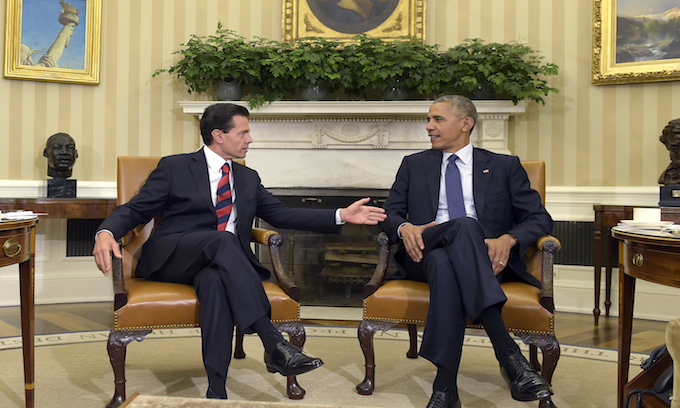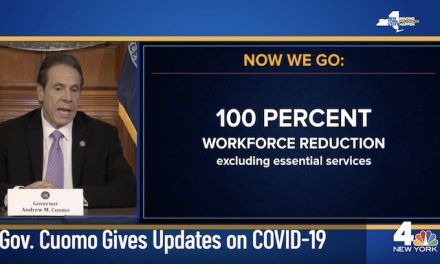The hours that Donald Trump spent with Mexican president Enrique Peña Nieto last week before the candidate’s major immigration speech provided important insights into the often-troubled relationship between the two countries. Peña Nieto’s willingness to receive Trump pushed his already low popularity rating even lower.
Approval for Peña Nieto in Mexico is at an historic low of 22 percent, largely because of law school plagiarism charges and his failures to rein in the violent drug cartels. Appearing on the same stage with Trump (4 percent popularity in Mexico) hurt Peña Nieto’s already tarnished image. Mexican and U.S. media ravaged Peña Nieto, who may not care. In Mexico, presidents serve one six-year term, and Peña Nieto will be out of office in 2018.
As Trump reiterated, and Peña Nieto agreed, it’s in the best interests of both countries to have a mutually beneficial relationship. But building strong ties is a two-way street. Too frequently, Mexico has disregarded and disrespected the well-established nonintervention prohibitions of international law – one nation cannot interfere in another sovereign country’s political process.
Mexico has actively and consistently interfered in U.S. state and federal politics while it has lobbied aggressively, often on U.S. soil, for its own interests. Any American leader perceived by Mexico’s elite as representing a threat to the open borders status quo will be vilified. In Mexico, Trump is considered potentially more dangerous to the wealthy and powerful than any politician who ever uttered a questioning word about Mexico’s motives.
In 2003, during the California gubernatorial recall election, Ricardo Monreal, governor of Zacatecas State (an area where half of the population had illegally immigrated to the U.S.), warned that Arnold Schwarzenegger’s election could create “a surge of anti-immigrant, xenophobic or racist feelings.” Schwarzenegger won in a landslide, and held office until 2011 without any evidence of ever projecting anti-immigrant sentiments.
In 2007, a year after he left office, former President Vicente Fox went on a U.S. tour. While in San Jose, Calif., Fox blasted the U.S. for its immigration policies; in Houston, Fox decried what he said was American “xenophobia,” and in Dallas, he urged for temporary work permits for millions of Mexicans and a path to permanent residency for those Mexicans.
In 2010, then-Mexican president Felipe Calderón addressed a joint session of Congress to denounce an Arizona law, SB 1070 passed by the state’s residents, that would allow local law enforcement to question the immigration status of suspects “during a lawful stop, detention or arrest,” assuming reasonable evidence of illegal entry. As he condemned SB 1070, Calderón called for Congress to pass “comprehensive immigration reform” and to “fix a broken and inefficient [immigration] system,” code phrases for amnesty.
Given its multiple internal problems, Mexico has plenty to clean up without worrying about what kind of a president, assuming he’s elected, Trump may be. Not only is Peña Nieto unpopular, so are the country’s 31 state governors. According to recent polling, they are seen as corrupt, and are blamed for allowing drug cartels and human traffickers to run rampant.
As well, Mexico’s poverty is reflected in the country’s poor infrastructure and substandard institutions, schools and its labor market inefficiency. More than 12 million Mexicans work in the black market without social security. Nearly 25 million Mexicans make less than $14 a day; 25 percent of the workforce is underemployed, and nearly 5 percent is unemployed.
Mexico should focus less on Trump, and more on cleaning up its own house. If it ever did, illegal immigration to the U.S. might drop precipitously.
A Californians for Population Senior Writing Fellow, Joe can be reached at [email protected] and on Twitter @joeguzzardi19.



















Recent Comments